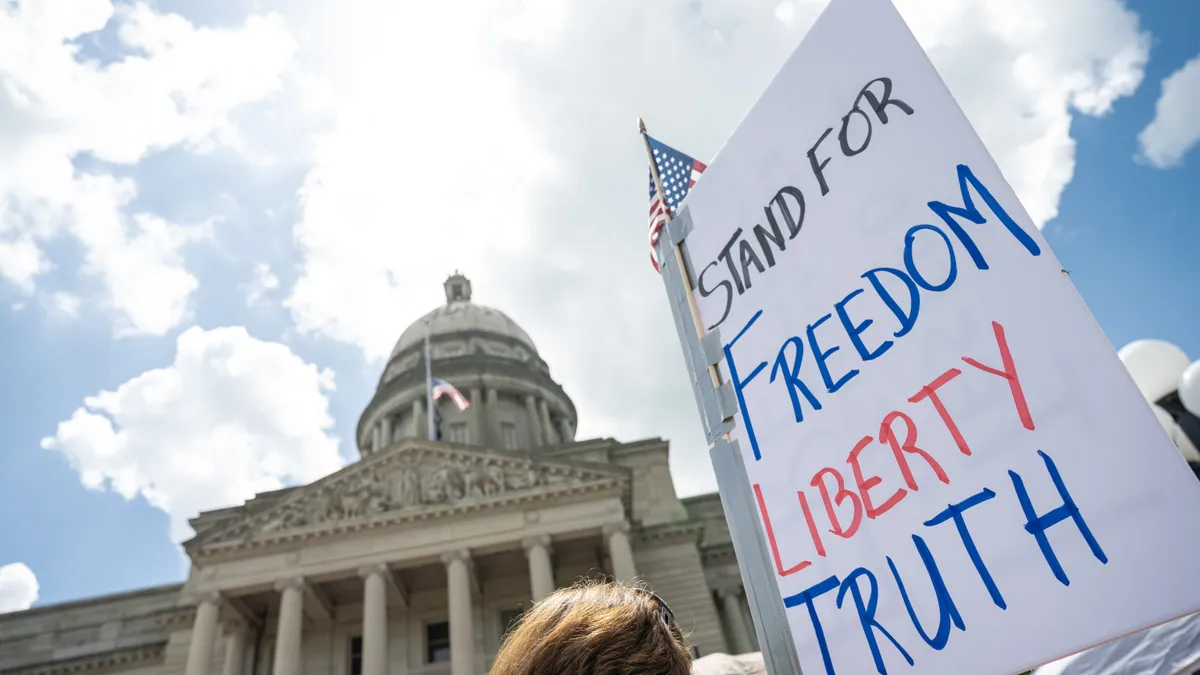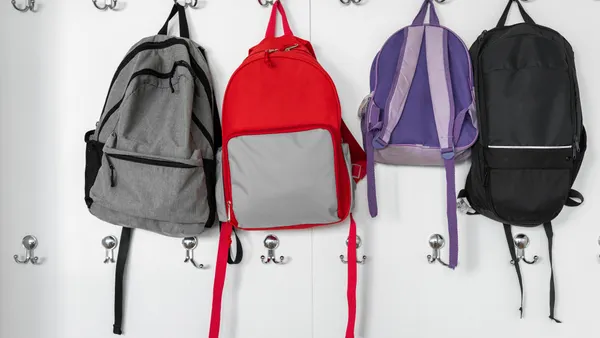Dive Brief:
-
The American Civil Liberties Union last week sued the Wentzville school district in Missouri to stop the district's bans on certain books, following on the heels of two suits ACLU filed against Oklahoma and New Hampshire school districts in late 2021.
-
Other challenges to book bans and laws that advocates say target people of color and the LGBTQ community are also growing on a local level. The ACLU filed two public records requests in Tennessee and Montana, and the Mississippi ACLU issued a letter to a Ridgeland, Mississippi, mayor who withheld funds from a local library until it got rid of LGBTQ+ related materials.
-
ACLU “will continue to actively pursue this issue through litigation and other advocacy methods,” spokesperson Eva Lopez said in an email. According to experts, lawsuits could eventually reach a higher court.
Dive Insight:
At least nine states have passed legislation preventing teachers from teaching what some parents and legislators say are divisive concepts in the classroom, but which advocates say intend to prevent discussions of racism and historically marginalized groups. Some 36 states have efforts to restrict education on bias, racism or contributions of specific racial or ethnic groups to U.S. history, according to a tracker by Chalkbeat.
Challenges are spreading on the local level, tailored to the circumstances — such as how, why and at what level of government the prohibition was passed — surrounding the bans and their content.
Many bills include language prohibiting discussion of “divisive concepts.” These concepts, according to various bill texts and an analysis by the Education Commission of the States, an organization that tracks the education bills, include teaching "the United States is inherently racist or sexist" and ascribing privileges to a race.
However, those challenging the laws say they were designed to limit or prohibit discussion of racism and history in the classroom.
Perhaps the most effective challenge could be the vagueness of many of the laws, said Rosemary Salomone, a law professor at St. John's University in New York. That strategy has already been used in New Hampshire, for example.
Other civil rights challenges could invoke the 14th Amendment’s Equal Protection clause, the First Amendment right to freedom of speech, and, in some cases like the so-called “Don’t Say Gay" bill in Florida, Title IX.
While a lawsuit that is representative of many of these bans could eventually reach the U.S. Supreme Court, a decision on that level could take years, requiring districts to comply with local bans in the meantime.
In some cases, challenges could come down to pitting the rights of one group of parents against another. They will also reflect challenges to local and state control of the curriculum, legal experts say.
Historically, a similar case unfolded in Epperson v. Arkansas, in which the Supreme Court in 1968 unanimously struck down an Arkansas law that criminalized the teaching of evolution in public schools. However, this time, challenges are not based in science, and could instead be based on legislation’s surrounding contexts like intent, Salomone said.
“The problem is pushing it to the Supreme Court,” said Salomone. “Given the membership of the Supreme Court now, the ACLU might not get what it’s looking for, unfortunately.”
In the meantime, the laws will impact districts in states with classroom censorship laws, including Idaho, Oklahoma, Tennessee, Texas, Iowa, New Hampshire, South Carolina, Arizona and North Dakota.
In many cases, districts may overcomply, said Salomone. Salomone conducted a study in the 1980s of the landmark U.S. Supreme Court case Hazelwood School District v. Kuhlmeier, which held that student school newspapers not established for student expression had fewer First Amendment protections than do independent newspapers.
“And I found that there was a chilling effect,” said Salomone, adding that districts’ overcompliance was especially true in politically conservative parts of the country. “So even where school districts are not challenging these actions, undoubtedly, it's going to have a chilling effect on what their decisions are going to be and what books they're going to permit in the classroom, because they're trying to avoid litigation.”











